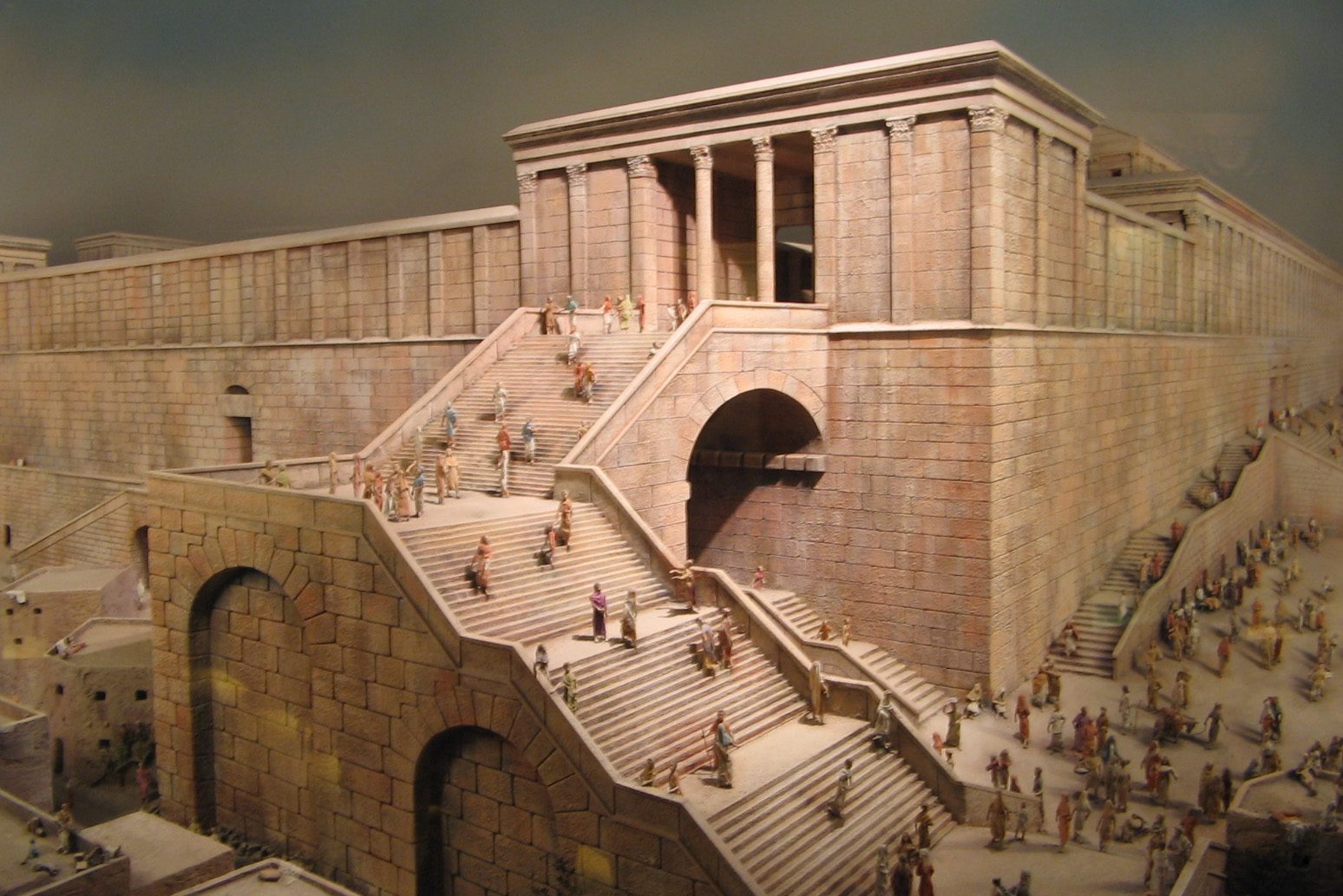The First Beit HaMikdash was actually built in the time of Shlomo HaMelech, King Solomon. Shlomo was the son of King David, who had conceived the idea of building a Temple for Hashem.
The Construction
The Bible tells us of the construction of this Temple in the Book of Melachim 1. Interestingly, whereas the Mishkan was built totally by the Jewish People, and with materials contributed by the Jewish People, the first person that Shlomo turns to when discussing his great Project is Chiram, King of Tzor.
There is good reason for this. Chiram is in possession of rare forests, of majestic cedars of Lebanon, and cypress trees that are unequalled anywhere in the world. They would be perfect for construction of a structure that Shlomo wants to be not only one of the Wonders of the World; he wants it to be “out of this world,” so to speak, to be a resting place for the Divine Presence.
Shlomo tells Chiram that David, whom Chiram had loved, had wanted to build a Temple, but had not been allowed to do so, because of all the wars he’d been involved in. But now G-d had granted Shlomo all the ingredients for success: great wisdom, great riches and, most of all, peace on all sides, that would allow him to apply all his energy to its construction.
They agreed that Chiram would supply Shlomo with cedar and cypress timber and Shlomo would supply Chiram with vast amounts of foodstuffs. And Chiram’s unmatched woodcutters would cut down and ship the timber to the Land of Israel.
Shlomo also levied a tax on the Jewish People to provide thirty thousand laborers on a rotating basis, to assist Chiram, seventy thousand to bear burdens and eighty thousand to do quarry work.
As the completion of the construction approached, HaShem came to Shlomo and said, “If you will not forsake My Torah, I will invest My Presence in your Temple, and I will not abandon the People of Israel.”
When all the work was done, Shlomo had the Ark of the L-rd brought up from “Ir David,” the City of David, where it had been reposing. Then, amid a ceremony involving the sacrificing of untold numbers of sacrifices, Shlomo reminded the People that it was his father, David, whose idea he had brought into reality.
Shlomo blessed the People, and promised that he would observe the condition that had been set for the permanency of the Temple; namely, that he and the People would not forsake the Torah.
He prayed to G-d, “But will G-d in truth dwell on the earth? Behold, the heaven and the heaven of heavens cannot contain You, how much less this house that I have built!…But may Your “eyes” be open towards this place night and day…to hearken unto the prayer that Your servant shall offer towards this place…May You hear in Heaven Your dwelling place, and when You hear, forgive” (Melachim 1, 8:27-30).
The Sins
According to the Talmud (Yoma 4b), the reason for the destruction of the First Temple was the pernicious and ineradicable performance of the following catalogue of sins: idol-worship, sexual immorality, and bloodshed.
This, despite the warnings delivered by Prophet after Prophet until we are told in the Book of Yirmiyahu that the Prophet has been instructed to tell Tzidkiyahu, the last King of Yehudah, that there will be no escape from Nebuchadnezzar, King of Babylon, who will burn Yerushalayim with fire.
The Destruction
In 586 B.C.E., some 420 years after the First Temple was built, the Prophecy of Destruction was realized. The Prophet who was an eye-witness to the tragedy describes it in Megilat Eichah, The Scroll of Lamentations:
“How does the city sit solitary, that was full of people!
How is she become as a widow!
She that was great among the nations,
And princess among the provinces,
Has become a handmaiden!” (Eichah 1:1)
and further, as the Prophet speaks of the G-d Who is now, as a last resort, punishing His wayward children, (Eichah 3:1-4)
“I am the man that has seen affliction
By the rod of his wrath.”
”He has led me and caused me to walk
In darkness and not in light.”
”Surely against me He turns His hand
Again and again all the day.”
“My flesh and my skin has He worn out;
He has broken my bones.”

